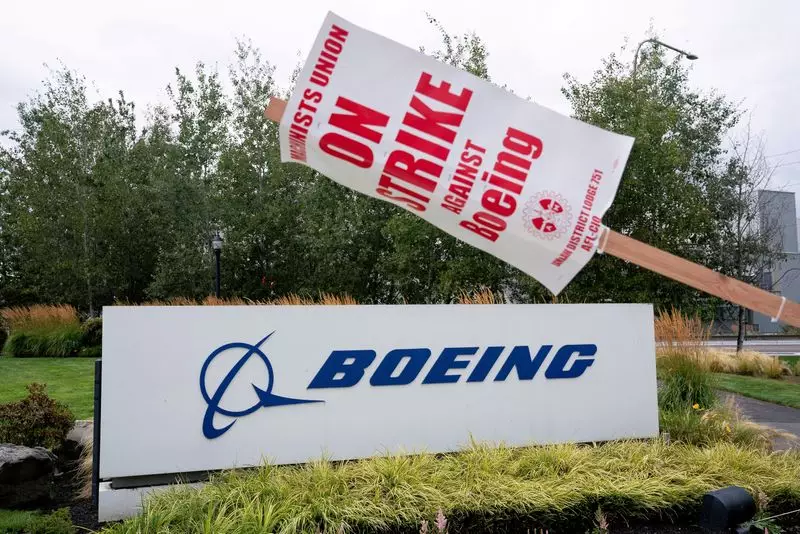Negotiations surrounding labor contracts at Boeing have reached a critical juncture, as the aerospace giant grapples with significant pushback from its workforce. Over 30,000 employees affiliated with the International Association of Machinists and Aerospace Workers (IAM) have initiated a strike, driven by widespread discontent regarding their working conditions and compensation. Notably, this strike comes after workers decisively rejected a contract proposal that would have delivered a substantial pay increase but fell short in other key areas, such as the annual performance bonus.
The cost of this industrial action is staggering, reportedly amounting to an estimated $100 million per day for Boeing’s already precarious financial situation. With debts exceeding $60 billion and ongoing economic challenges, the company is at a crossroads, forced to navigate the intricate dynamics of labor disputes while striving to maintain its operational viability.
On the frontlines of this dispute, striking workers are embodying a transformative spirit of resilience. Many employees, like Martin Klyavkov, a wing builder for Boeing’s 737 MAX, have expressed palpable frustration with the company’s perceived disregard for their welfare. The sentiment among workers highlights a growing divide between corporate strategies focused on financial recovery and the essential needs of the workforce tackling rising living costs and stagnant wages.
Workers are creatively managing their economic uncertainty, seeking additional employment opportunities, such as food delivery, as a means to supplement the limited financial support provided by their union during the strike. This juxtaposition of corporate solvency and worker strain paints a complex picture of the larger labor discourse, illustrating a wave of dissatisfaction that could reshape the future of labor negotiations within the aerospace sector.
The ongoing strike comes at a time when Boeing must carefully assess its financial decisions. The potential for prolonged labor disputes means the company could face losses that extend into the billions, prompting senior management to consider drastic measures like hiring freezes and potential furloughs. Such steps reflect not merely a reaction to current circumstances but a broader strategy aimed at preserving financial health and averting further credit downgrades.
However, the initial miscalculations demonstrated by both Boeing and the IAM during negotiations, especially with the failure to secure a contract that resonated with employee sentiment, indicate a deeper rift that may not be easily mended. The vast majority of IAM workers rejecting the initial settlement signals that the workforce has reached a tipping point where their expectations have shifted considerably.
Rebuilding trust between Boeing management and its workforce will undoubtedly require a concerted effort that extends beyond superficial negotiations. Analysts point towards a painful reality; it may take considerable time and engagement to bring a new proposal to the workers that genuinely addresses their grievances. Reports suggest that while median employee compensation in the aerospace sector has seen growth, Boeing has notably fallen behind, leading to long-standing frustration among employees.
As the negotiating teams reconvene, the glaring disconnect between executive priorities and worker needs looms large. Experts emphasize the importance of not only addressing wage concerns but also fostering an inclusive dialogue that empowers workers largely marginalized in prior discussions.
As Boeing heads into future negotiations with IAM, the critical question becomes whether both sides can navigate this tumultuous period without further entrenching their positions. The current labor dynamics could set a precedent for subsequent interactions and reshape relationships between corporate hierarchies and the workforce long after this strike concludes.
The struggle at Boeing exemplifies a broader trend in labor relations, where workers increasingly demand recognition, fair compensation, and a voice in the operations of the companies they devote their skills to. The outcome of this crisis may not only affect Boeing’s future but could also resonate throughout the aerospace industry, heralding an era wherein corporate responsiveness to labor concerns is paramount.

